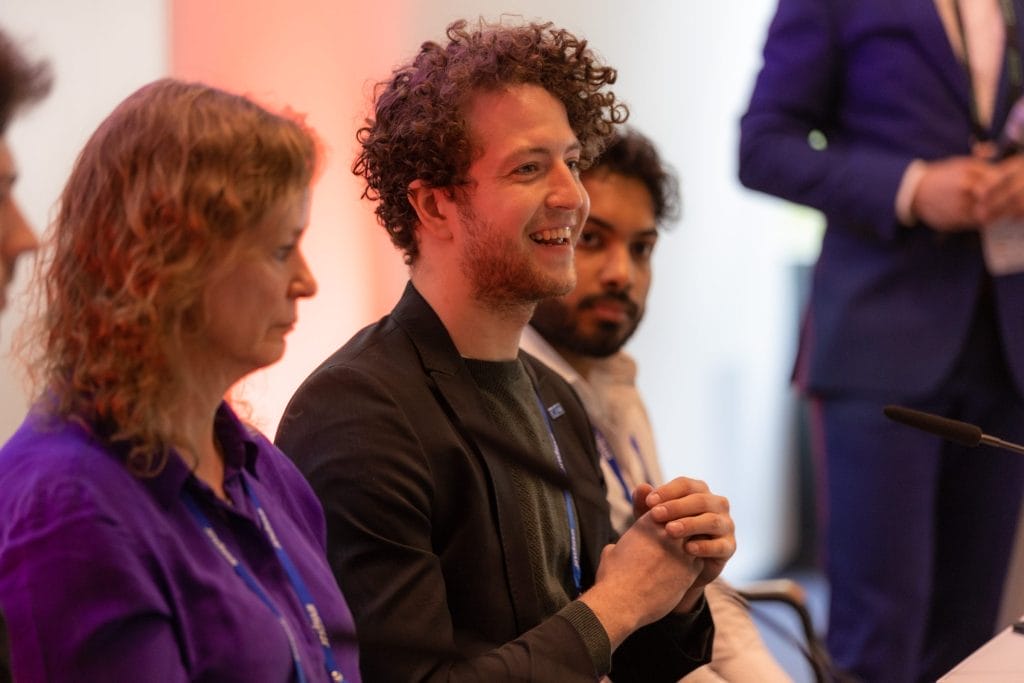Traditionally drug discovery has relied, almost exclusively, on wet lab activities with animal testing being the most controversial component of this. However, this is very expensive, and insights gained can be somewhat limited by the capabilities of the laboratory environment. CompBioMedEE, one of the ExCALIBUR emerging requirements projects, continues a groundbreaking collaboration between biologists and computational scientists to enable the use of HPC to deliver new biological insights which have a massive impact on all our lives through, for instance, new and improved drugs.
Reuben Martin, a PhD student studying in collaboration with UCL and Evotec, works very closely with the CompBioMedEE team and not only has his research been shaped by this project, but furthermore the training and knowledge exchange opportunities that is has provided have been very beneficial. This has enabled him to go from running simulation codes on his laptop just a couple of years ago to now running on Frontier, an exascale supercomputer and, at the time of writing, the world’s most powerful HPC machine.

Reuben uses HPC to model molecular orbital overlap in proposed drugs. Relying on non-Newtonian physics based interactions, these provide far more information about potential drug side effects than classical simulation approaches. The community is aware of the signature of specific problematic orbital overlaps which should be avoided, and as part of Reuben’s research he is looking to be able to routinely test new drugs, as part of the approvals process, to identify whether any of these problematic markers are present.
For this Reuben is using the FMO simulation package, but a major challenge is that it can take over 8 hours to manually prepare the simulation for a single protein. To this end, Reuben has been working with researchers at Evotec to develop a high throughput approach, called FMO-HT, which comprises numerous scripts and tools to automate much of this and ultimately cut the preparation time down to a few minutes.
FMO is a very important tool because, compared to other approaches such as the modelling of free energy via the ESMACS package, this provides residue-specific information including non-canonical interactions that are key for binding. However, FMO is still fairly early on and Reuben is currently running simulations on Frontier to test and validate the tool, which is important to the wider biomedical community, before enhancing it with GPU capabilities to then improve the compute performance on future exascale supercomputers.
Reuben’s computing journal has demonstrated the importance of training and knowledge exchange. It was during a summer internship with Andrea Townsend-Nicholson, who leads the CompBioMedEE project, that Reuben became aware of the importance of computational science and went from having never used the command line before to mastering the skills and techniques required to run on large scale HPC. CompBioMedEE has been crucial here because it has enabled him to much more easily interact with computational scientists, pick up the wide range of necessary skills via training materials, and has also provided opportunities to leverage large scale HPC.
CompBioMedEE is one of the ExCALIBUR emerging requirements projects, where Andrea and her team provide a unique mix of computational and biomedical scientists, with the overall value being greater than the sum of the individual parts. Already this work is leveraging exascale supercomputing, and with the emergence of AI it is clear that there are many future potential opportunities to exploit our HPC machines for a range of biomedical applications.
